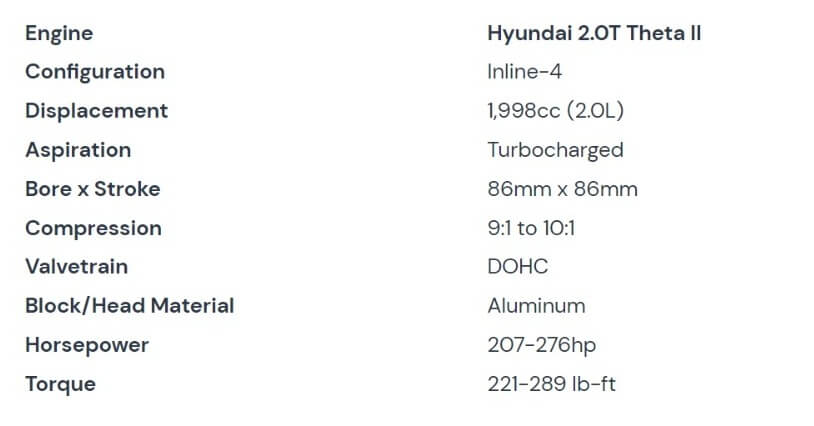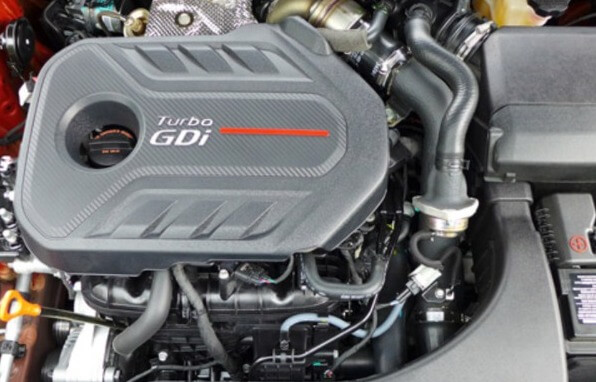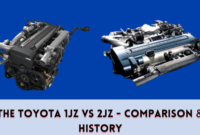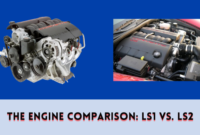The Four Most Common Hyundai 2.0T Engine Issues. The Hyundai 2.0T engine debuted in the Genesis Coupe in 2009 as the Theta II Turbo MPI engine. Hyundai quickly followed with a new iteration, the Theta II GDI engine. Both engines provide an excellent combination of power, performance, and efficiency. The 2.0T, on the other hand, does not have the finest reputation for dependability. However, no engine is flawless, so the Hyundai 2.0T is not alone in this regard. In this article, we’ll go over some of the most prevalent Hyundai 2.0T Theta II engine issues, as well as dependability and general information.

What Vehicles Make Use of the Theta II 2.0T?
Hyundai Theta 2.0T engines are available in the following model years and years:
- Genesis G70 from 2017 till the present.
- Hyundai Genesis Coupe (2009-2014)
- Hyundai i30N (2018+)
- Hyundai Kona N from 2021 to the present
- Hyundai Santa Fe 2012-2020
- Hyundai Sonata (2009-2019)
- Hyundai Veloster N (2018-present)
- 2011-2019 Kia Optima
- Sorento 2015-2020 Kia
- Kia Sportage from 2011 till the present
- Kia Stinger models from 2017 till the present
*We’ll go over some 2.0T engine specs before returning to the debate over MPI vs GDI engines. There are some significant variances that relate to a few of the frequent issues we discuss.
Hyundai Theta 2.0 Turbo Specifications
Hyundai’s 2.0L Turbo engine specifications are as follows:

The 2.0T engine is available in numerous configurations. They all, however, have the same fundamental inline-4 2.0L turbo DOHC architecture. All Theta II engines have an 86mm bore and stroke. Depending on the engine, compression ratios range from 9.0:1 to 9.5:1 to 10.0:1. In any case, they are all fairly conventional specifications for modern turbo engines. Hyundai 2.0T engines are designed to give high performance while consuming little gasoline.
G4KF 2.0 Theta II MPI
From 2009 until 2014, Theta II MPI engines were exclusive to the Hyundai Genesis Coupe. MPI stands for multi-port injection, which means that these engines employ typical port injection technology. It is the most significant distinction between the soon-to-be-released GDI engines.
The 2.0L turbo in 2009-2012 versions has a 9.5:1 compression ratio and can produce up to 223hp and 221tq on 93 octane fuel. Hyundai improved the 2.0T for the 2013 and 2014 Genesis Coupe models. A twin-scroll turbo and a reduced 9.0:1 compression ratio are among the changes. With 93 octane, power is 275hp and 275tq.
G4KH 2.0T Theta II GDI
Direct fuel injection is used in GDI engines. It’s a fantastic update that improves the Theta II’s performance and fuel efficiency; nevertheless, direct injection has one drawback, which we’ll explore as one of the Hyundai 2.0T typical engine troubles.
This engine has several variations due to some upgrades over its 11+ year lifespan. Earlier engines actually have a touch more power than later 2.0T GDI engines since Hyundai switched to a smaller turbo for faster response in later 2.0T GDI engines.
Theta II GDI 2.0L (G4KL)
Alright. We’ll be quick so we can get moving. The 2.0 GDI’s final variant is the G4KL, which can be found in the Genesis G70 and Kia Stinger. Compression is set at 10.0:1, which improves power and performance. Power is 252hp and torque is 260lb-ft.
The Most Common Hyundai 2.0T Engine Issues
Among the most prevalent Hyundai 2.0T engine issues are:
- Failure of the engine
- Carbon accumulation
- Excessive use of oil
- Oil spills
The above topics will be thoroughly discussed in the remainder of this text. However, before proceeding, some brief notes should be made. These are among the most typical issues with the Hyundai 2.0T Theta engines. That is not to say that all of the problems we identify are widespread in the real sense of the word. Instead, when issues develop, these are some of the most common places.
However, the 2.0L inline-4 turbo engine has a poor reputation for dependability. Fortunately, Hyundai and Kia provide quite substantial warranties, and many of these issues appear to emerge while the vehicle is still under warranty. We’ll try our best to explain when and how many miles these concerns become more widespread. We’ll sum up the article with some general views on Hyundai 2.0T Theta reliability. For the time being, let’s dive right in and talk about the issues raised above.
1) Failure of the Hyundai 2.0T Theta II Engine
This is obviously not a situation that anyone wants to encounter. It’s also worth noting that all engine manufacturers and engines experience full failures on occasion. So it’s not just a Hyundai/Kia issue. However, the scope and severity of engine failures on the 2.0T are cause for alarm. For this reason, Hyundai and Kia recalled nearly 1.2 million Theta II engines.
Engine failures appear to mostly affect vehicles manufactured in the United States. Debris generated during the manufacturing process eventually inhibits oil flow to the engine’s rod bearings. As a result, bearings wear quickly and finally seize. When a bearing seizes, the engine is likely to fail completely; there is at least enough damage that a new engine is less expensive than a rebuild.
Hyundai was striving to identify and address the core cause of the 2.0T’s rod bearing and engine issues. Theta II GDI engines from 2011 to 2014 were the most prone to these issues. The Santa Fe and Sonata are also prominent. Engine failure is not completely eliminated in newer engines, but it is far less common. In any case, engine failure is a major issue. However, with a good warranty and recalls as a result of these issues, the Hyundai 2.0T didn’t do too badly in the end.
Failure of a 2.0 Turbo Engine
On the 2.0T Theta engines, look for the following signs that may indicate engine failure:
- Excessive use of oil
- Engine squeaking
- Inadequate performance
Because there are so many different things that might go wrong with an engine, the symptoms of engine failure can be fairly broad. It is conceivable for the Hyundai 2.0L inline-4 to fail without warning. Excessive oil usage, on the other hand, could be an indication of problems. Engine knocking is a dead giveaway that anything is wrong within. It is particularly frequent with bearing wear.
Otherwise, poor overall performance and engine functioning could indicate the beginning of a 2.0T failure. When certain symptoms, such as engine knock, appear, it is usually too late to rescue the engine.
Repairing the 2.0T Theta II Engine
The precise solution for engine failure on the 2.0L turbo engine is dependent on the severity of the failure. Internal engine problems on the Hyundai 2.0T, on the other hand, frequently cause enough damage that rebuilding the damaged engine makes no sense. Repairs can be pricey, therefore a new engine is usually the less expensive option.
Again, the majority of these engine issues occur during the warranty period. Given that Hyundai and Kia are aware of the problems, they will very certainly deal with owners if failures occur outside of warranty. If your engine isn’t protected, the repairs can easily cost $5,000 or more.
2) Hyundai/Kia 2.0T Carbon Deposit Issues
Carbon buildup is a problem exclusive to the 2.0L GDI engines, hence it does not affect the Genesis Coupe. We find ourselves writing about this issue a lot these days. Carbon buildup is a disadvantage and defect of direct injection (DI) engines such as the Hyundai 2.0T, which is otherwise an excellent technology that improves fuel economy and performance.
Moving on to the issue at hand, all engines create some oil blow-by, which accumulates on intake valves and ports. Fuel flows across the intake valves with port injection, as seen on the Genesis Coupe. This aids in the removal of any oil deposits. DI, on the other hand, pours gasoline directly into the 2.0L Turbo engine’s cylinders. Because there is no fuel flowing over the intake ports and valves, oil blow-by begins to stick and cause carbon build-up.
Because it is a slow-moving problem, symptoms can be difficult to detect. The good news is that carbon deposits rarely cause severe problems with longevity or reliability. Carbon buildup, on the other hand, can have a considerable detrimental impact on performance and drivability. Cleaning the intake valves on the Theta II GDI engines is recommended every 80,000 to 100,000 kilometers.
Symptoms of 2.0L Theta II GDI Carbon Build-Up
The following are some signs of carbon buildup on the 2.0L inline-4 turbo engine:
- Misfires
- Idle time
- Stuttering or hesitancy
- Power outage
Carbon deposits on intake valves gradually restrict airflow into the cylinders. Misfires, rough idle, and stuttering or hesitation while accelerating are all indicators of this. These symptoms are frequently undetectable until carbon buildup becomes significant.
Power loss is a key symptom of carbon deposits on valves on the Hyundai 2.0T. This, however, can be quite difficult to notice. It is not something that occurs overnight. Instead, power loss happens over tens of thousands of miles.
Blasting of the Hyundai 2.0T Walnut
One of the most effective methods for removing carbon buildup from intake valves is walnut blasting. A shop-vac and walnut medium shells are used in this operation. To help remove any carbon deposits, the shells are blasted into the intake ports. Because walnut media shells are quite affordable, this job is largely labor-intensive because the intake manifold must be removed.
The walnut blasting of the Hyundai 2.0L turbo intake valves takes a few hours, so anticipate to pay $300-500 at a repair shop. It’s a good idea to perform this maintenance every 100,000 miles or so, although it’s not strictly necessary.
Related : The Three Most Common Honda J35 3.5 V6 Engine Issues
3) Excessive Oil Consumption in the 2.0 Turbo Theta II
Okay, we’ll attempt to get through this portion as quickly as possible. Excessive oil consumption is sometimes associated with the first Hyundai 2.0T issue we discussed: engine failure. However, there have been countless reports of the Theta II engine performing admirably despite excessive oil consumption. The 2.0L turbo engine isn’t the only one experiencing these troubles.
All engines naturally consume some oil. A frequent way for oil to be lost is through the piston rings. Because metals expand with heat, oil consumption is often higher on a cold engine with bigger clearances. However, given the design defects in the Hyundai 2.0T Theta engine internals, this could be a precursor of more serious issues.
Oil loss is considered excessive when it exceeds 1 quart of oil every 1,000 miles driven. If you detect this much oil loss, you should investigate the root cause. However, there are instances where cars naturally lose a lot of oil without causing any other reliability or lifetime issues.
Symptoms of 2.0L Inline-4 Oil Consumption
The following symptoms may indicate excessive oil consumption or another issue with the 2.0T Theta II engine:
- 1 pint or more per 1,000 miles
- The smoke produced by exhaust
- The odor of burning oil
- Engine pinging/knocking
The amount of oil consumed by the engine is sometimes the only symptom. That one is very self-explanatory. If the engine is functioning smoothly, it may simply burn a lot of oil naturally. Other symptoms, on the other hand, may indicate a more serious problem.
Excess smoke from the exhaust indicates that oil is burning someplace. Burning oil odors may potentially signal a problem (though this is not always the case with oil leaks). If your Hyundai/Kia 2.0 Turbo is knocking or pinging, this could indicate internal damage. That is absolutely a time when you should look into the issue further.
4) Oil Leaks in the Hyundai 2.0 Turbo
We normally try to avoid mentioning design issues that have been addressed through recalls or other service initiatives. It’s difficult to do with the 2.0 Turbo engine because it’s been subjected to numerous recalls. It’s at least a clue that Hyundai and Kia are working to resolve issues with the 2.0T inline-4 Theta engines.
In any case, one of the primary oil leaks on the 2 liter engine is located within the turbo oil feed line. Hyundai replaced the oil feed lines with a new component, which appears to be a long-term solution. In the broad scheme of things, it’s a minor issue with a simple and inexpensive solution.
None of these engines are completely immune to this problem, although it appears to be most prevalent in the Kia Optima and Hyundai Sonata. North of 60,000 miles, oil leaks from the oil feed line appear. Again, this was a Hyundai recall, so check to see whether your vehicle is eligible for the recall or if the repair has already been completed. Otherwise, as these vehicles age, look for leaks from primary seals or the valve cover gasket.
Symptoms of a Theta II Turbo Oil Leak
The following are the symptoms of an oil leak from the 2.0L turbo oil feed line:
- Visible dripping
- Loss of oil
- The odor of burning oil
- Engine compartment smoke
Typically, oil from the Hyundai Theta II turbo oil feed line leaks onto the ground. After the automobile has been parked for a while, you will see a noticeable leak and oil drops on the ground. You may notice that your 2.0T engine is using more oil than usual, but a visible spill on the ground should occur much sooner.
Oil may drip onto heated components and burn off in rare instances. This will result in light smoke from the engine bay and possibly burnt oil odors.
Replacement of the 2.0T Theta Oil Feed Line
Again, this is a minor issue. It’s something you should address as soon as feasible. Fortunately, the oil supply line and gaskets cost between $50 and $100. Almost anyone who is prepared to do it alone should be able to finish it in the driveway. If you go to a repair business, you could end up paying $50-100 for labor. Check to see whether your Hyundai or Kia is subject to a recall. A quick video about the Hyundai 2.0T oil feed line engine difficulties is shown below.

Reliability of the Hyundai 2.0T
Is the Hyundai 2.0T Theta II engine trustworthy? We feel the 2.0L inline-4 receives medium dependability ratings. There were significant fears about severe engine failures and damage. However, because the Hyundai 2.0T has been on the market for a while, most of the early issues have been ironed out or minimized. Fortunately, Kia and Hyundai provide outstanding warranties and have addressed recall issues. These features keep the 2.0 Turbo from obtaining below-average reliability ratings.
Of course, two major aspects are upkeep and luck of the draw. No engine is perfect, and all engines experience unexpected early failures and issues. That is true of almost every engine and manufacturer. We can’t change the luck of the draw, but it’s always obvious. Some people claim ongoing troubles with the Hyundai 2.0T engine, while others reach high mileage without incident.
One thing we can control is maintenance. Use high-quality oils, change fluids on schedule, and address issues as they arise. With a little luck on your side, the 2.0T Theta can give remarkable reliability. It’s difficult to quantify longevity, however many Hyundai 2.0 Turbo engines last far over 150,000 miles.
Summary of Hyundai 2.0T Engine Issues
Because the 2.0T Theta II engines have been around since 2009, there are numerous versions. All of them use the same basic 2.0L, DOHC, turbocharged engine. They all provide an excellent balance of performance, power, and efficiency. However, the Hyundai 2.0T engines’ reliability and engine troubles were always a major source of concern.
Engine failures were fairly prevalent, particularly in 2011-2014 versions. Due to internal deterioration and engine failure, Hyundai finally issued recalls for over 1.2 million Theta II engines. Many of these breakdowns occur under warranty, thanks to Hyundai and Kia’s excellent warranties. Another prevalent issue on previous engines that was remedied through a recall was a turbo oil feed pipe.
Otherwise, carbon build-up is a problem with the 2.0T Theta II GDI engines. It’s a little drawback to what we think is a fantastic technology. Maintain the Hyundai 2.0T properly, and you should have a reliable and enjoyable experience with the engine.






